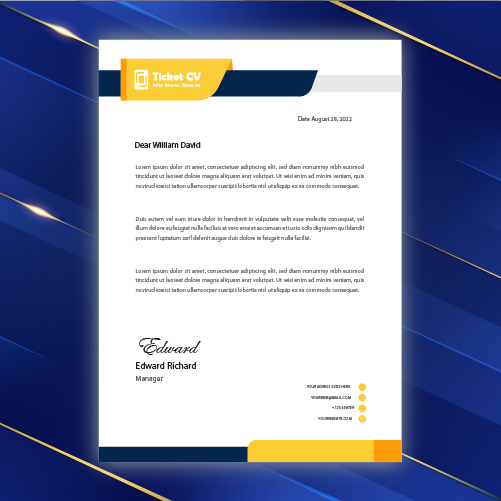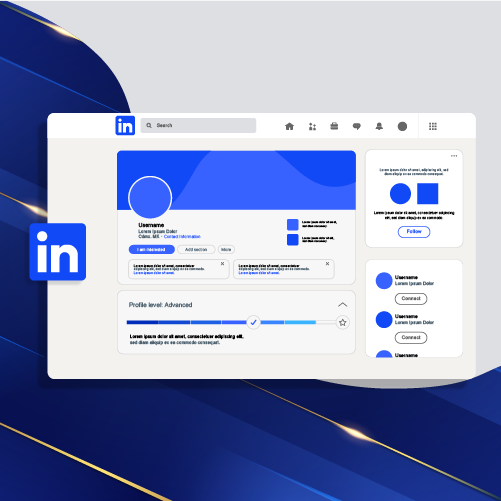How long do you have to accept a job offer? The process can be both exciting and nerve-wracking. Knowing how long you have to make a decision is crucial.
Understanding the dynamics of job offer acceptance timelines is essential in making informed decisions. From company policies to industry standards, various elements come into play when determining the window for responding to an employment proposition. Stay tuned as we unravel these intricacies and equip everyone with knowledge that empowers confident decision-making.
Contents
ToggleUnderstanding the Job Offer Acceptance Timeline
Job offers typically have a deadline of 1-2 weeks. This timeframe allows candidates to carefully evaluate the offer and consider any potential negotiations. However, it’s essential to note that deadlines for accepting job offers can vary based on the company’s needs. Some organizations may require a quicker response due to urgent hiring requirements, while others might provide a more extended period for consideration.
It’s common to receive a job offer response within a few days after the initial offer is made. This quick turnaround time enables both parties to efficiently progress through the hiring process, ensuring that positions are filled promptly without unnecessary delays.
Responding to a Job Offer
Acknowledging Receipt
Upon receiving a job offer, it’s crucial to promptly acknowledge its receipt. This not only maintains professionalism but also demonstrates respect for the employer’s time. A simple email expressing gratitude for the opportunity can go a long way in establishing a positive connection with the hiring manager.
Acknowledging the job offer doesn’t necessarily mean accepting it right away. It simply conveys your appreciation and readiness to engage in further discussions about the terms of employment, if needed.
Requesting Clarification
If there are any aspects of the job offer that seem unclear or ambiguous, don’t hesitate to seek clarification. Asking questions about specific terms or conditions shows genuine interest in understanding what is being offered. This proactive approach not only helps you make an informed decision but also indicates your commitment to ensuring that both parties are on the same page.
By requesting clarification, you demonstrate your thoroughness and attention to detail, qualities that employers value in potential hires.
Expressing Gratitude
Regardless of whether you plan to accept or negotiate the job offer, expressing sincere gratitude is essential. A thank-you note reflects positively on your professionalism and leaves a lasting impression on employers, regardless of their final decision regarding your candidacy.
Taking this step shows that you understand and appreciate the effort put into extending the job offer and signals your respectful approach towards professional interactions.

Strategies for Extending Your Decision Time
Communicating Needs
When a job offer is on the table, negotiating a timeline extension can be crucial. If you find yourself needing more time to consider the offer, it’s essential to communicate your needs effectively. By clearly articulating your specific concerns or requirements related to the offer, you pave the way for a more tailored final proposal. Open and honest communication about your needs fosters transparency in the negotiation process.
Expressing valid reasons for requiring more time can lead to a well-informed decision that benefits both you and the company. Email correspondence with the hiring manager can serve as an effective channel for expressing your need for additional time and negotiating a new decision deadline. This could include providing detailed reasons such as personal commitments or ongoing interviews at other companies that are still in progress.
Suggesting Alternatives
In some cases, certain terms of the initial offer may not align perfectly with your expectations or requirements. In such situations, proposing alternative solutions demonstrates flexibility and problem-solving skills on your part. By offering alternatives that address any potential sticking points in the original offer, you showcase adaptability and initiative.
Suggesting alternatives also opens up opportunities for finding common ground between both parties involved in negotiations. This approach highlights your willingness to work towards mutually beneficial agreements rather than simply rejecting aspects of the original proposal outright.
Seeking Compromise
When navigating through job offer negotiations, being open to finding compromises is pivotal. It showcases a collaborative mindset and willingness to accommodate both your own needs as well as those of the employer’s requirements.
Flexibility during this stage not only strengthens your position as a strong candidate but also reflects positively on how you handle challenging situations within professional environments.
Best Practices for Considering a Job Offer
When considering a job offer, it’s crucial to thoroughly assess all the terms presented. This involves carefully examining aspects such as salary, benefits, working hours, and any additional perks. By evaluating each term meticulously, individuals can make an informed decision that aligns with their career goals and personal circumstances.
Thoroughly assessing the terms includes contemplating both immediate and long-term implications. For example, while a higher initial salary may seem appealing, individuals should also consider factors such as potential for growth within the company or work-life balance offered by the employer.
Careful evaluation of all terms ensures that candidates are equipped to make a well-informed choice regarding whether to accept or negotiate the job offer.
Negotiating the Acceptance Period
Proposing a Timeline
When considering a job offer, negotiating the acceptance period is crucial. You can request more time to evaluate the opportunity and make an informed decision. By articulating valid reasons for needing extra time, you can propose a realistic timeline that aligns with your needs.
For instance, if you have another interview scheduled or need to discuss the offer with family members, these are valid reasons for requesting additional days to consider the job offer. Crafting a professional email expressing these reasons can help in negotiating an extended acceptance period.
Handling Counteroffers
Negotiating a counteroffer may be necessary when evaluating a job offer. If you receive a counteroffer from the employer, it’s essential to handle it strategically while ensuring alignment with your long-term career goals.
You might want to take some time before responding to assess whether the counteroffer meets your expectations and aligns with your career objectives. Email correspondence is often used to communicate about counteroffers, allowing you time to carefully consider and craft a well-thought-out response.
Hiring managers generally appreciate candidates who express their need for time when handling counteroffers as this demonstrates thoughtful consideration of the proposal.
Understanding the Position in Depth
Role Responsibilities
Understanding the role responsibilities is crucial before accepting a job offer. Candidates should communicate with the hiring manager about the timeline for accepting the offer. Negotiating terms and timelines can be part of the process for strong candidates. Employers appreciate candidates who take time to understand the job opportunity.
Before making a decision, it’s essential to have a clear understanding of what will be expected in your new role. This involves asking questions about specific tasks, projects, and reporting structure. By doing so, you demonstrate your genuine interest in excelling within the position.
Negotiating terms may also involve discussing deadlines for accepting an offer or requesting additional time to consider all aspects thoroughly. This proactive approach showcases your commitment to making an informed decision that aligns with both parties’ expectations.
Company Culture
The company culture plays a crucial role in making a job opportunity appealing to everyone. Before negotiating terms of employment, it’s vital to understand this aspect thoroughly as well. The connection with superiors and colleagues can significantly impact work life satisfaction.
Researching company culture through various channels such as social media platforms, employee reviews on websites like Glassdoor, or networking with current or former employees can provide valuable insights into what it might be like working there day-to-day.
A positive company culture fosters collaboration, innovation, and employee well-being while shaping a supportive environment where individuals thrive professionally and personally.
Long-term Prospects
Strong candidates may have more negotiating power regarding timelines for accepting a job offer due to their qualifications and experience level. Employers often provide reasonable timelines for candidates to make decisions on offers but being aware of long-term prospects is equally important when deciding how much time is needed before acceptance. Long-term prospects encompass factors such as career growth opportunities within the organization and potential advancements over time.
Email correspondence provides insight into communication style while establishing connections beyond just receiving an initial job offer response from employers; this allows further exploration into understanding company culture beyond written materials available online.

Handling Multiple Job Offers Simultaneously
When handling multiple job offers, it’s essential to compare them to make an informed decision. Negotiating terms through email is a common practice, and a strong candidate may have the opportunity to request more time to consider an offer. Companies typically give candidates a few days to a week to make a decision.
Comparing job offers allows individuals to assess the various elements of each offer, such as salary, benefits, location, company culture, growth opportunities, and work-life balance. For example, Company A might offer higher pay but fewer vacation days compared to Company B. By comparing these aspects side by side, candidates can determine which offer aligns best with their career goals and personal preferences.
Negotiating timelines is crucial when prioritizing job offer options. This ensures that candidates have sufficient time to carefully evaluate each offer without feeling rushed into making a decision. By being transparent about needing extra time for consideration due to other pending offers, individuals can potentially secure extended timelines from prospective employers.
Dealing with Short Acceptance Timelines
When faced with a job offer and a short acceptance timeline, making quick decisions is crucial. It demonstrates your strong interest in the position and ensures you don’t miss out on the opportunity. Negotiating a timeline that works for both you and the hiring manager is essential. This strategy allows you to make an informed decision within a reasonable time frame.
Making a well-thought-out decision within the given time shows your commitment as a strong candidate. Jotting down reasons for your choice can help clarify things for yourself, ensuring that emotions don’t cloud your judgment.
Negotiating terms of the job offer can buy you more time to consider, helping avoid feeling pressured into making an immediate decision. Using email correspondence to document the timeline and reasons why more time is needed can be beneficial in avoiding pressure tactics from the employer.
Crafting a polite but firm response outlining why additional time is necessary helps maintain professionalism while expressing your need for further consideration. This approach also fosters open communication with the hiring manager, creating space for understanding on both sides.
Best Practices for a Graceful Acceptance or Decline
Crafting a Professional Response
When responding to a job offer, it’s crucial to use professional email correspondence. Craft an articulate and polite email expressing your decision. You can also consider negotiating the terms within your response. For example, you may express gratitude for the opportunity while proposing slight adjustments to certain terms.
Maintaining professionalism in your communication is key. Here’s an example of how you might structure such an email:
Subject: Gratitude and Consideration Dear [Hiring Manager’s Name],
I hope this message finds you well. I would like to extend my sincere appreciation for offering me the [Job Position] at [Company Name]. I am truly honored by the opportunity.
After careful consideration, I would like to discuss some aspects of the offer that could potentially enhance my ability to contribute effectively at [Company Name]. Specifically, I would like to propose some flexibility in regards to [specific terms].
Thank you once again for considering me as part of your team.
Warm regards, [Your Name]
Maintaining Relationships
Building and maintaining a strong connection with the hiring manager is paramount during this process. Timely email correspondence demonstrates professionalism and keeps the opportunity open. Understanding their timeline can help inform your decisions regarding when and how to respond.
By making sense of their timeline, you can ensure that your response aligns with their expectations while giving yourself ample time for thoughtful consideration before replying.
Leaving the Door Open
Leaving room for negotiation allows both parties an opportunity for further discussion and understanding each other’s needs better. Extending the time frame before accepting an offer provides space to evaluate all factors comprehensively.
It’s essential not only from a strategic standpoint but also as a way of ensuring that every aspect aligns with your career goals before moving forward.

Final Remarks
Understanding the job offer acceptance timeline is crucial for making informed decisions. Responding promptly and professionally, considering all factors, and negotiating when necessary are essential steps in this process. By handling multiple job offers simultaneously and extending decision timelines strategically, individuals can navigate this critical phase with confidence and integrity.
Consider these insights when evaluating a job offer to ensure a well-considered decision. Taking the time to understand the position thoroughly, negotiate thoughtfully, and respond gracefully will contribute to a successful outcome. Remember that each decision shapes one’s professional journey, so approach them deliberately.
Frequently Asked Questions
What is the typical timeline for accepting a job offer?
The typical timeline for accepting a job offer ranges from one week to several weeks. It can vary based on the employer’s urgency and the complexity of the position.
How can one effectively handle multiple job offers simultaneously?
To manage multiple job offers, prioritize each opportunity based on factors like career growth, company culture, and compensation. Communicate professionally with all employers involved and make decisions promptly to avoid delays.
Is it possible to negotiate the acceptance period of a job offer?
Yes, it is possible to negotiate the acceptance period by providing valid reasons such as ongoing interviews or personal commitments. However, it’s essential to approach this negotiation tactfully and professionally.
What are some strategies for extending the decision time for accepting a job offer?
Strategies for extending decision time include expressing gratitude while requesting additional time, demonstrating continued interest in the role, and being transparent about other pending opportunities.
How should one gracefully accept or decline a job offer?
One should express appreciation regardless of their decision when responding to a job offer. Clearly communicate acceptance or declination in a respectful manner while maintaining professionalism throughout the process.











